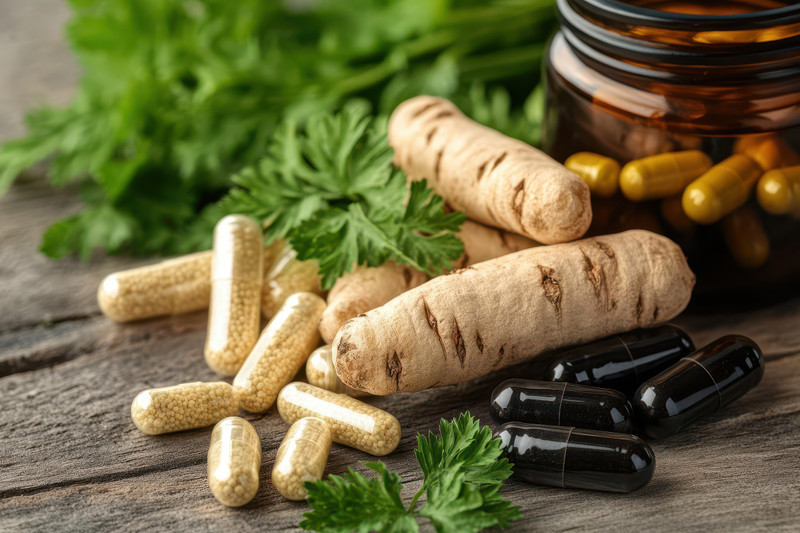If you are a frequent buyer of over-the-counter supplements, herbs, and/or other natural remedies, you probably have favorites depending on your health considerations. Even if you prefer to “window shop” to see what’s popular and available on the market in order to be prepared for a time of need, you likely have heard of more familiar supplements/herbs such as turmeric/curcumin, berberine, and Vitamin B12. Join the club.
Occasionally, we like to stop and sing the praises of other natural remedies on the market that perhaps you have never heard of, or at least it’s been a long time. No doubt there are some “hidden” gems out there that have would have appeal for you, if only you knew they were there. Well, here are some of them.
So in the spirit of the holiday season, we are here to spread some joy for you for healthier days ahead by presenting you with these five supplements/nutrients that are unsung but worthy of your attention. We’ll have more blogs of this nature coming out in the days and weeks ahead. Note that some of these substances or compounds are standalone products, while others are a component found in a product of another name.
5 “Unsung” Supplements/Nutrients Worth Checking Out
Black cohosh root. Known formally as either Actaea racemosa or Cimicifuga racemosa, the herb black cohosh on one end of the spectrum belongs to the sweet, innocent-sounding buttercup family, and on the other end bears nicknames ranging from snakeroot and rattleweed to rheumatism weed and black bugbane. Buttercups mixed with bugbanes? Ewwww, right? Not so fast. Black cohosh offers good tidings in women’s health, especially when it comes to easing the pain of menopause, alleviating symptoms such as hot flashes, night sweats, vaginal dryness, tinnitus, and sleep disturbances. In fact, one study of more than 100 women exhibiting menopausal symptoms showed that black cohosh was more effective in mitigating hot flashes and night sweats than Prozac. Turn the page on the subject, and we see that black cohosh for many years was also used by Native Americans for treating musculoskeletal pain as well as pneumonia, cough, and fever. Lots to like here.
Glycerin. Not to be confused with the more potentially explosive nitroglycerin, just plain glycerin is commonly used as a component in water-based creams, personal lubricants and ointments for treating irritated bodily surfaces such as those associated with hemorrhoids. A clear and odorless natural sugar alcohol, glycerin performs as a humectant in that it provides lubrication and aids the skin in maintaining moisture.
Mexican Yam Extract. It is believed there are hundreds of species of wild yams in existence, of which only about a dozen are considered suitable for human consumption. One of those is Mexican Wild yam root, which contains an abundance of the chemical diosgenin, a plant sterol that is a precursor to DHEA (dehydroepiandrosterone), which in turn is a hormone found in the adrenal glands of men and women.Specialists in the ages-old practice of traditional medicine have long used Mexican yam root to treat menopausal symptoms in women. Studies have show that supplementation with DHEA, as sourced from Mexican Yam’s diosgenin, can also assist in treating other conditions such as infertility, schizophrenia, and dementia.
Pygeum extract. Pygeum’s health-inducing ‘bite’ comes from its ‘bark,’ or more specifically the bark from Pygeum africanum, a type of evergreen tree found in Africa. Pygeum has been shown in studies to thwart the production of unwanted pro-inflammatory compounds in the prostate that have been linked to benign prostatic hyperplasia (BPH). This anti-inflammatory characteristic of Pygeum bark is attributed to the presence of active components, namely fat-soluble sterols and fatty acids.
Wormwood herb. Wormwood is a bitter herb sourced from the perennial shrub Artemisia absinthium L. Because of its antimicrobial proclivities, it has long been used as a pain reliever and as an agent for stimulating digestion and improving appetite. Its wide-ranging health benefits also include numerous ‘anti’ properties such as being antiparasitic – it has been effective in expelling pathogens from the body – and antibacterial, antifungal, anti-ulcer, antioxidant, anti-inflammatory, and antidepressant. Wormwood also has shown competence in treating neurological diseases and reducing blood-sugar levels in type 2 diabetics.
Granted, the preceding is a lot of information to process when considering these five otherwise “unsung” natural remedies. If you are thinking about looking into using any of these for what might ail or otherwise benefit you, be sure to discuss your possible use of it/them with your personal physician or other healthcare professional.

